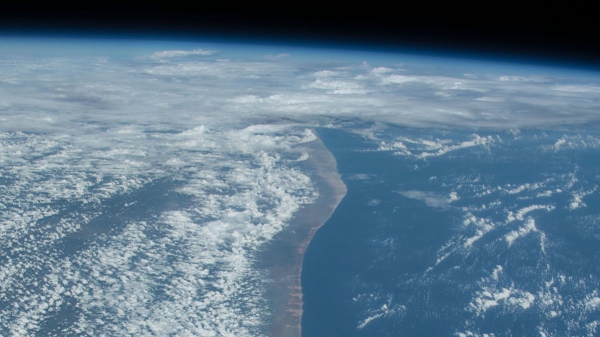Ongoing climate change driven by greenhouse gas emissions is often discussed in terms of global average warming. For example, the landmark Paris Agreement seeks to limit global warming to 1.5 ⁰C, relative to pre-industrial levels. However, the extent of future warming will not be the same throughout the planet. One of the clearest regional differences in climate change is the faster warming over land than sea. This “terrestrial amplification” of future warming has real-world implications for understanding and dealing with climate change.
A new paper studying terrestrial amplification focuses on how geochemical records of past climate on land and at the sea surface allow scientists to better predict the extent to which land will warm more than oceans—and will also get drier—due to current and future greenhouse gas emissions. “The core idea of our study was to look to the past to better predict how future warming will unfold differently over land and sea,” says Alan Seltzer, an assistant scientist in the Marine Chemistry and Geochemistry Department at the Woods Hole Oceanographic Institution (WHOI) and the lead author of the paper.
“One reason why understanding terrestrial amplification matters is that under future global warming, the magnitude of warming that the planet will experience is not going to be the same everywhere,” says Seltzer. “Adding a firm basis to climate model simulations, that is rooted in observations of past climate and basic physics, can tell us about how the regional differences in ongoing and future warming.” Seltzer notes that terrestrial amplification (TA) is analogous to “polar amplification,” a prediction of climate models that higher latitudes will experience more warming than low latitudes.
Read more at Woods Hole Oceanographic Institution
Image: The Indian Ocean coastline of Kenya and Somalia is pictured from the International Space Station above the African continent. A new study shows how past climate records on land and at the sea surface allow scientists to better predict the extent that land will warm more than the ocean – a phenomenon called terrestrial amplification. (©NASA)


